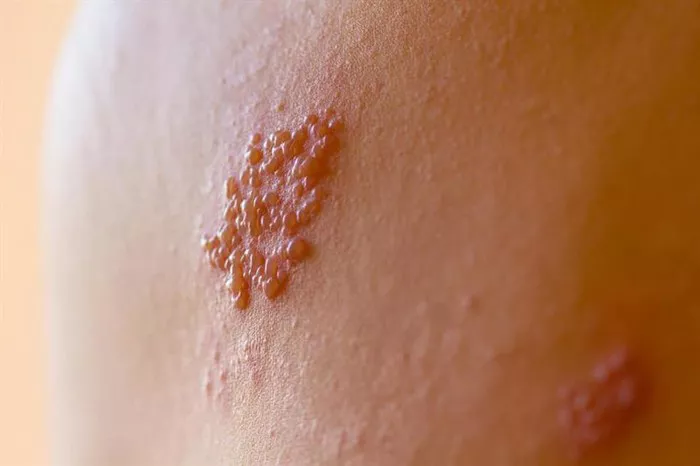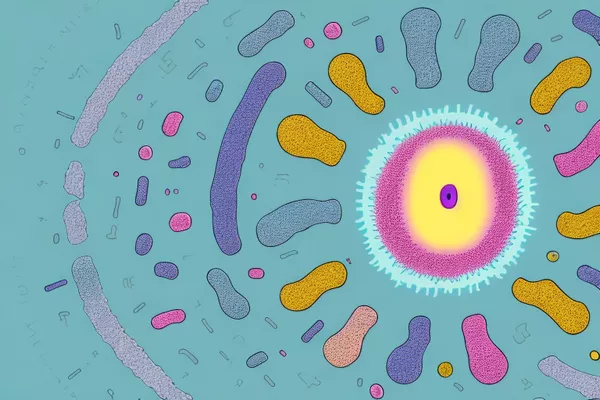Shingles is a painful viral infection caused by the varicella-zoster virus, the same virus responsible for chickenpox. If you had chickenpox as a child, the virus remains dormant in your body, hiding in your nerve cells. Later in life, it can reactivate, leading to shingles. While shingles itself is not as contagious as chickenpox, it is still possible for adults with shingles to spread the virus to others who have never had chickenpox or who have not been vaccinated against it.
In this article, we will explore how contagious shingles is, who is at risk, and what precautions adults with shingles should take to prevent spreading the infection.
What is Shingles?
Shingles, also known as herpes zoster, typically presents as a painful rash, often appearing in a band or strip on one side of the body. The rash usually starts as red patches that develop into fluid-filled blisters. Along with the rash, individuals may experience itching, burning, or shooting pain, sometimes even before the rash appears.
Shingles occurs when the dormant varicella-zoster virus, which stays in the body after chickenpox, becomes reactivated. The virus travels along the nerves and manifests on the skin in the form of the characteristic rash. While anyone who has had chickenpox can develop shingles, it is more common in older adults or individuals with weakened immune systems.
How Does Shingles Spread?
The primary way shingles spreads is through direct contact with the fluid-filled blisters of an active shingles rash. The varicella-zoster virus can be transmitted when someone touches the blisters or comes into contact with contaminated objects, such as clothing or towels that have been exposed to the fluid from the blisters.
While shingles itself is not as contagious as chickenpox, the virus can still be transmitted to someone who has never had chickenpox or who has not been vaccinated against it. If this person is exposed to the virus, they may develop chickenpox, not shingles. After recovering from chickenpox, they can then be at risk of developing shingles later in life.
Is Shingles Contagious Before the Rash Appears?
Shingles is not contagious before the rash appears. However, the varicella-zoster virus is active in the body before the rash emerges, and people with shingles may start experiencing symptoms such as pain, itching, or burning in the affected area. These symptoms can be a sign that the virus is active and may later lead to a rash.
Although the virus is not typically contagious in this early stage, it is still important for people with shingles to avoid close contact with others until the rash has scabbed over. This reduces the risk of transmission to people who have not had chickenpox or the chickenpox vaccine.
How Long is Shingles Contagious?
Shingles is contagious from the moment the rash appears until the blisters crust over and form scabs. This can take anywhere from 7 to 10 days. During this time, the varicella-zoster virus is active and can be spread through direct contact with the fluid from the blisters.
Once the blisters have scabbed over, the person is no longer considered contagious. However, it’s essential for the individual with shingles to continue practicing good hygiene and covering the rash to minimize the risk of spreading the virus.
Who is at Risk of Contracting the Virus from a Shingles Patient?
The risk of contracting the varicella-zoster virus from a person with shingles depends on several factors, including the age and health status of the person exposed to the virus.
Unvaccinated individuals: Those who have never had chickenpox or have not received the chickenpox vaccine are at the highest risk of developing chickenpox if they come into contact with the shingles rash.
Pregnant women: Pregnant women who have not had chickenpox or the chickenpox vaccine are at risk of developing chickenpox if exposed to someone with shingles. This could also pose risks to the unborn child.
People with weakened immune systems: Adults with compromised immune systems, such as those undergoing chemotherapy, individuals with HIV/AIDS, or those on immunosuppressive medications, may be at higher risk of contracting the virus or developing more severe complications from shingles.
Infants and young children: Children who have never had chickenpox or the vaccine are vulnerable to contracting chickenpox from exposure to the varicella-zoster virus.
Precautions for Adults with Shingles
If you have shingles, it’s important to take certain precautions to prevent the spread of the virus to others, especially to people who are vulnerable.
Avoid contact with high-risk individuals: Stay away from people who have not had chickenpox, including young children, pregnant women, and people with weakened immune systems, until the rash has scabbed over.
Cover the rash: Keep the shingles rash covered with loose, non-stick bandages or clothing to minimize the risk of spreading the virus through direct contact.
Practice good hygiene: Wash your hands frequently with soap and water, especially after touching the rash or applying any medication. Avoid scratching the blisters, as this can lead to further irritation or increase the chances of spreading the virus.
Avoid sharing personal items: Do not share towels, clothing, or other personal items that may come into contact with the rash. Contaminated items can contribute to the spread of the virus.
Stay home when contagious: If possible, stay home from work or school while the rash is still in the blister stage to reduce the risk of spreading shingles to others.
Use antiviral medications: Antiviral drugs like acyclovir, valacyclovir, or famciclovir can help reduce the severity and duration of the shingles rash, as well as the risk of transmitting the virus to others. These medications are most effective when taken early in the course of the infection.
Can Shingles be Prevented?
While there is no surefire way to prevent shingles, there are vaccines that can reduce the risk of developing the condition.
Chickenpox vaccine: Receiving the chickenpox vaccine as a child can prevent chickenpox and, by extension, shingles later in life. Most people who get the vaccine will not get chickenpox, but if they do, it tends to be much milder than in those who were infected as children.
Shingles vaccine: The shingles vaccine, recommended for adults over the age of 50, can significantly reduce the risk of developing shingles and the severity of the condition if it does occur. The vaccine has been shown to be most effective when administered to people who have never had shingles before.
Healthy lifestyle choices: Maintaining a healthy lifestyle with regular exercise, proper nutrition, and stress management can help keep your immune system strong, reducing the risk of shingles reactivation.
Conclusion
Shingles is a contagious viral infection that can be spread to others who have never had chickenpox or been vaccinated against it. While shingles is not as contagious as chickenpox, it still poses a risk, especially to individuals with weakened immune systems, pregnant women, and unvaccinated children. By taking appropriate precautions and following good hygiene practices, adults with shingles can minimize the risk of spreading the virus to others. Vaccination is also a key preventive measure that can reduce the chances of developing shingles in the first place. If you or someone you know is diagnosed with shingles, it’s important to follow the guidelines outlined in this article to protect yourself and those around you.
Related topics
- How Much is the Shingrix Vaccine?
- What is the Incubation Period for Shingles Virus?
- Is the Shingles Virus the Same as Herpes?



























